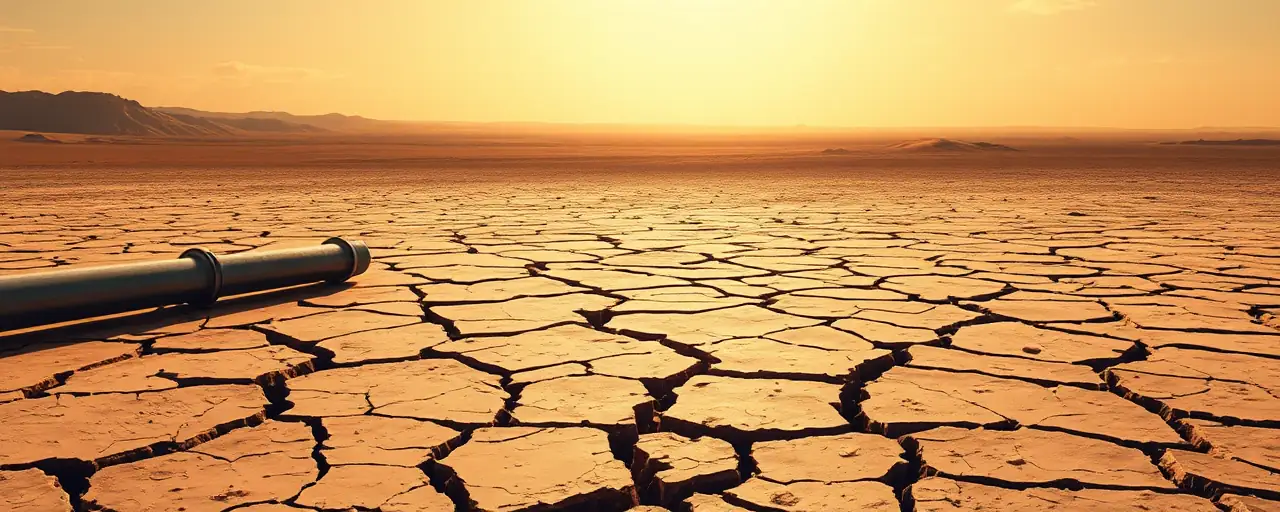A Pipeline Over People
When Secretary of State Marco Rubio picked up the phone to call Iraqi Kurdistan’s Prime Minister Masrour Barzani, the conversation wasn’t about the struggling families in Erbil or the young voters disillusioned by yet another flawed election. It was about a pipeline. The Iraq-Türkiye Pipeline, shuttered since March 2023, has become the latest fixation for U.S. policymakers eager to protect investments and flex influence in a region desperate for something more than economic promises. This call, cloaked in talk of partnership, reveals a deeper truth: America’s priorities in Iraq remain tethered to oil and geopolitics, not the people who bear the cost of these deals.
The pipeline’s closure has indeed caused pain, with losses estimated at $23 billion for Iraq’s Kurdish region alone. But the rush to reopen it, framed as a win for stability and democracy, feels like a tired script. For decades, Iraqis have watched foreign powers prioritize resource extraction over human needs, from the invasion in 2003 to the present day. The U.S. claims to champion Iraqi sovereignty, yet its actions suggest a different goal: securing energy markets and countering Iran at the expense of addressing Iraq’s fractured governance and economic inequality.
This isn’t just about one phone call. It’s about a pattern. The United States has a chance to redefine its role in Iraq, to center the voices of ordinary citizens yearning for accountable leadership and equitable growth. Instead, the focus stays on pipelines and profits, leaving Iraqis to wonder if their future matters as much as their oil.
Democracy’s Cracks in Kurdistan
If the U.S. truly cared about strengthening democracy, as Rubio’s team insists, it would look harder at what’s happening on the ground in Iraqi Kurdistan. The region’s October 2024 elections weren’t a triumph of civic freedom; they were a stark reminder of how power entrenches itself. The dominant parties, the KDP and PUK, hold sway not just through ballots but through militias that cast a long shadow over any hope of reform. Accusations of fraud swirled, and voters expressed frustration that their choices rarely translate into change.
This isn’t new. For years, the U.S. has propped up Kurdish leadership as a model for democracy in a turbulent region, ignoring the cracks beneath the surface. Public disillusionment festers because governance remains stagnant, with wealth and influence concentrated among a few. The U.S. pours resources into security partnerships and economic deals, like the pipeline push, but sidesteps the harder work of fostering institutions that genuinely serve the people. A true commitment to democracy would mean investing in transparent electoral systems and dismantling the militia networks that undermine them, not celebrating flawed elections as progress.
Some argue this focus on pipelines is pragmatic, a necessary step to stabilize the region’s economy. But stability built on oil revenue alone is a house of cards. Without addressing the governance failures that fuel distrust, no amount of investment will deliver the democratic future Iraqis deserve. The U.S. must stop settling for superficial wins and start tackling the root causes of political stagnation.
A Better Path Forward
There’s another way to engage with Iraq, one that puts human needs first. The U.S. could redirect its energy toward policies that empower Iraqis rather than entrench elites. Imagine the impact of investing in education, healthcare, and small businesses across Iraq and Kurdistan, sectors that directly lift communities rather than funnel wealth to oil barons. The trade between the U.S. and Iraq, currently a modest $1 billion annually, could grow meaningfully if focused on diverse industries like agriculture or technology, creating jobs for young Iraqis eager to build a future.
Security matters too, but not the kind that prioritizes military hardware over human rights. The U.S. has promised air defense systems to the Kurds, a nod to countering ISIS and other threats. Yet true security comes from governance that earns public trust, not just weapons to fend off extremists. By supporting civil society groups and independent media, the U.S. could amplify Iraqi voices demanding accountability, helping to dismantle the patronage networks that choke progress.
Critics might say this approach is naive, that oil and pipelines are the backbone of Iraq’s economy and global influence. But betting everything on fossil fuels ignores the long-term costs: environmental degradation, economic dependency, and a populace left behind. The U.S. has the resources and leverage to chart a different course, one that aligns with the aspirations of Iraqis who want more than a cut of oil profits.
Time to Listen
Iraq’s story doesn’t have to be one of missed opportunities. The United States stands at a crossroads, with a chance to redefine its legacy in a nation it has shaped, for better or worse, over decades. Reopening the Iraq-Türkiye Pipeline may bring short-term gains, but it won’t heal the deeper wounds of a people craving justice, opportunity, and a government that answers to them. The U.S. must listen to those voices, not just the ones in boardrooms or government offices.
This is about more than Iraq. It’s about what kind of partner America wants to be in the world. A nation that chases narrow interests will always fall short of its ideals. But one that invests in people, in their hopes and their potential, can build something lasting. Iraqis aren’t asking for miracles; they’re asking for a chance to shape their own future. The U.S. should give it to them.
